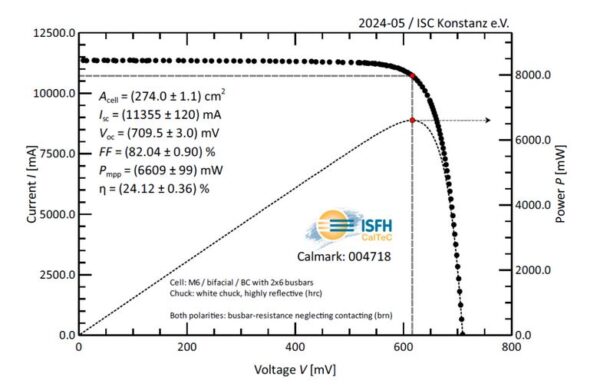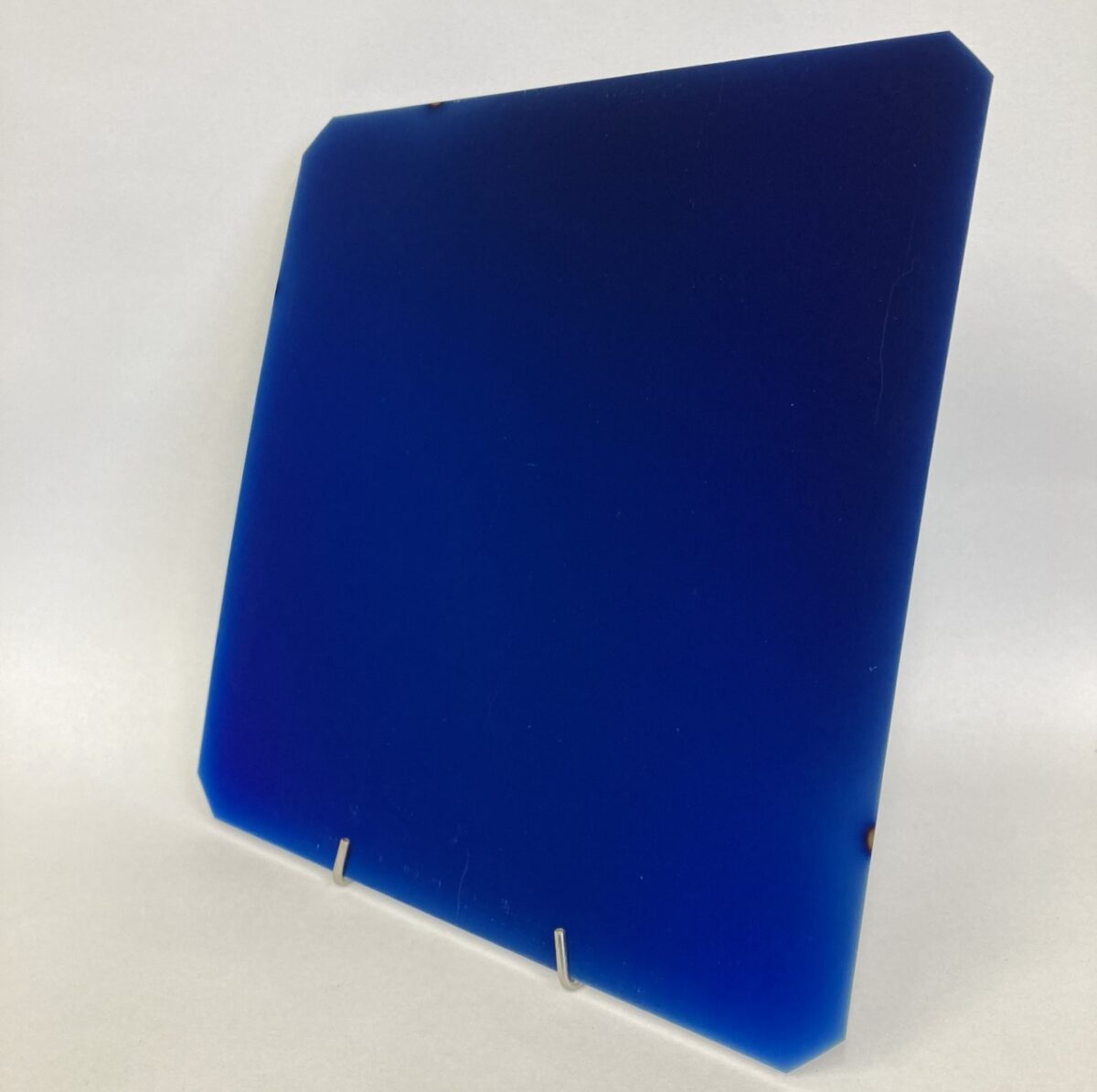German research institute ISC Konstanz has claimed a power conversion efficiency of 24.12% for a TOPCon back contact (TBC) solar cell. The researchers said their IBC4EU solar cell was designed in accordance with the polyZEBRA concept.
The result was confirmed by Germany’s Institute for Solar Energy Research Hamelin (ISFH). “The certified efficiency of 24.12% turns out to be higher than that achieved with in-house measurement,” ISC Konstanz researcher Jonathan Linke told pv magazine, referring to the uncertified 24.0% result that the research group announced in December. “It is the highest ever achieved solar cell efficiency produced at ISC Konstanz.”
The cell also achieved an open-circuit voltage of 709.5 mV, a short circuit density of 11,355 mA, and a fill factor of 82.04%.

“Considering that the laboratory cell fabrication of standard industrial cells at ISC Konstanz relies entirely on manual wafer handling, machines that are used for numerous cell concepts, and that screen printing is on only a few tenths of cells in a batch, this efficiency is already as targeted,” Linke added. “An implementation of the polyZEBRA technology in an automated production line is expected to result in a cell efficiency of over 25% with a lower cost of ownership compared to existing TBC cell concepts, with module efficiency eventually exceeding 24%.”
The polyZEBRA cell fabrication process uses a unique and low-cost laser-based process to achieve passivating contacts on both polarities and is suitable for mass production, according to its creators.
“Currently, the ISC team is optimizing individual process steps to further increase the efficiencies demonstrated in the laboratory and implementing simplified process sequences to further reduce the expected costs of a future production line planned in 2025,” Linke stated. “The cell development was funded by the European Union’s Horizon Europe research and innovation program.”
This content is protected by copyright and may not be reused. If you want to cooperate with us and would like to reuse some of our content, please contact: editors@pv-magazine.com.









By submitting this form you agree to pv magazine using your data for the purposes of publishing your comment.
Your personal data will only be disclosed or otherwise transmitted to third parties for the purposes of spam filtering or if this is necessary for technical maintenance of the website. Any other transfer to third parties will not take place unless this is justified on the basis of applicable data protection regulations or if pv magazine is legally obliged to do so.
You may revoke this consent at any time with effect for the future, in which case your personal data will be deleted immediately. Otherwise, your data will be deleted if pv magazine has processed your request or the purpose of data storage is fulfilled.
Further information on data privacy can be found in our Data Protection Policy.